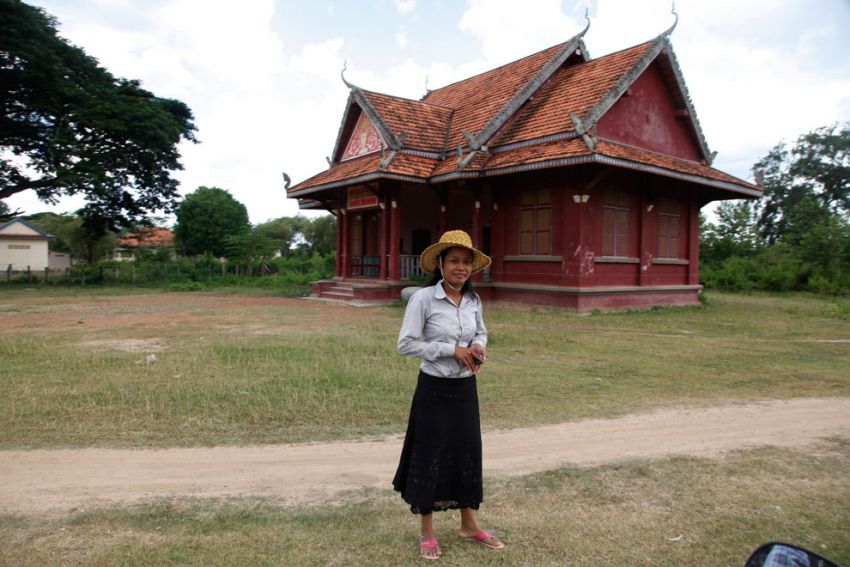Unofficial Translation from The Phnom Penh Post’s Khmer edition
TUESDAY, 21 OCTOBER 2014,
TONG SOPRACH
ហេតុអ្វីបានជាថវិកាក្រុង-ស្រុកប្រមាណ $១៧ លានចាយមិនអស់?

Last week, the senior government officials were delighted, enjoying their life very much with the bonuses the just received, which included a representative bonus, hospitality bonus, mission bonus and utility bonus. All these bonuses were combined in a single package, as mentioned in the Sub-decree adopted by the government on 13 October, which introduces the positive-based bonuses to government members and advisors of similar positions, civil servants and military officers whose positions range from undersecretaries of state to higher positions. To receive the bonus, the senior government officials at the national level will find it easy since they just need to sign off on the paper work.
The officials on the sub-national levels, on the other hand, often complain about the complicated and slow process of documenting budgets for expenditure and detailing how they use it, especially at the district / municipal levels, which seem to be the most complicated. I have been talking with some district officers to forecast the progress and the development of Decentralization and Deconcentration (D&D) through sub-national democratic development. According to their statements, the process of development is not a serious problem, yet the application of the budgeting process and the submission of the reports about it, as required by the new procedure, are really a nuisance. Before, when they [D/M] were under the Ministry of Interior, they would get the budgets just after the financial officer signed some papers at the provincial office.
Since the enforcement of Sub-decree No. 36 in 2013, the budget for district / municipal level has been about 0.8 percent of the national current income [in 2012], which roughly amounts to 17 million dollars. The distributions of the budget depend on the size of the populations in the districts or towns, some of which receive approximately 20 to 50 thousand dollars. The budget covers the salaries of the local D/M officials, allowances for district/municipal councils, maintenance and repair of the offices and the purchase of other facilities, as well as social development, which accounts for the least proportion of the budget at only one percent.
The difficult part lies in the process of submitting the supporting documents to propose the budget at the provincial town. To get the development budget finalized, endorsement from two institutions is required while the application of salaries requires endorsement from three: the Provincial Department of Public Functions, Provincial Department of Finance and Economy and lastly the Provincial Department of Treasury where they work out and generate the budget. In the meantime, it is more difficult if compared to communal councils level to getting the budget requires only direct interaction with the provincial treasury.
Furthermore, the submission of supporting documents is a lengthy process. It takes at least two weeks for the money to be transferred into each official’s account since an official will have to get past three or four offices of the three institutions before they can get to meet the head of the provincial treasury.
“In some offices, there are two or three officers who are responsible for checking the relevant documents, thus the documents have to be examined by around fifteen officers before they are accepted. On top of that, each of the officers need be offered some tips, around 5 or even 10 dollars for senior officers; this is known as “under-the table-money”. Totally, the local official needs to spend around 90 to 100 dollars whenever they come to provincial center to get the budget.
The hardest place to get around is the provincial finance department, where mistakes are usually found on the documents. If the officers there find some mistakes, the documents are returned to their places of origin [district/municipality] to be corrected. Those officers advise on how to correct them if they are contacted, but the relevant provincial officials have not yet provided any course from which they can learn about the new reform.
Obviously, this is a trick of the provincial official to earn some money. Not given a tip, they would just ignore the documents, retaining them and telling the applicants to come back later. In their journey back and forth between the district and provincial center, the accounting officials will have to pay for their own expenses if the district governor does not reimburse them. These costs include gasoline, meals, and photocopying services. If the documents need to be brought back and forth three or four times due to mistakes, they have to spend 25 to 30 dollars for a round-trip, even for districts that is not too far from the provincial center. And what about Veal Veng district of Pursat province, which is located more than 70 kilometers of bad roads away from the center? And how about Sampov Luon district of Battambang province, which is located more than 100 kilometers from the center?
According to some district administration officers offered an interview , some accounting officials have wanted to quit their jobs because they have to spend too much of their own money travelling back and forth so many times each month. Why has the new reform made their lives more miserable? Why don’t the provincial authorities create a one-window service policy to ease the bureaucratic snags and prevent corruption? Is because of nepotism, which allows the district governor to appoint their henchmen to accounting positions? These henchmen may not specialize or even have backgrounds in the relevant fields or know how to work with the reforms. These so-called officers make the situation worse, but some accounting officers claim that this issue demands more attention and effort to ease the implementation of new reforms which always starts with difficulties and becomes more smooth afterwards.
Regarding the budget for development projects, the new system complicates the expenditure, as it sets limitations on auctions and expenses and demands that district officials provide detailed reports about their expenses and send them to the inter-provincial departments. That is because the district governors, including the governors of the autonomous districts, are the ones who have the authority to decide on those expenditures. In 2013, some districts almost exceeded their planned budgets while others had more than 10 percent left – about 20 or 30 million Riels in cash. These remaining amounts were rolled over to be used for the next year. The reasons for the leftovers, as stated by different “officers, are the long procedures, the complicated processes, and the bidding process durability of the development activity. Notably, some claimed that they spent the entire budget, but reports submitted to be cleared at the provincial financial department and the provincial treasury department documented some money left from the budget, which was later regarded as leftovers of the budget this year [in 2013].
In conclusion, the failure to use up the budget for the district/municipal level reveals the weakness in the monitoring and evaluation system of the Ministry of Economy and Finance in their financial reform, as well as the lack of transparency and accountability in subnational development. If the 17-million-dollar budget cannot be all used up, how much is left over? What are real reasons for this underspending? Nothing is known yet!
Regarding D&D reform, the Ministry of Economy and Finance has not been implementing it with real commitment. The democratic development on subnational levels exists only on paper, in principle and title, and it is used only to trick donors into becoming development partners. In fact, the ministry, as well as the government, should reconsider this issue and treat sub-national level development in the same way as development at the national level. For example, they cannot just package all the bonuses for the senior government officials working at national level like they did last week while allowing those at the sub-national level to struggle financially, as they barely have enough money to spend. Therefore, the Ministry of Economy and Finance should find a solution that can ease the burden of the officials working on the subnational levels, allowing them to fully use their budgets, according to plan.
Tong Soprach is a social-affairs columnist for the Post’s Khmer edition.
Comments: [email protected]
